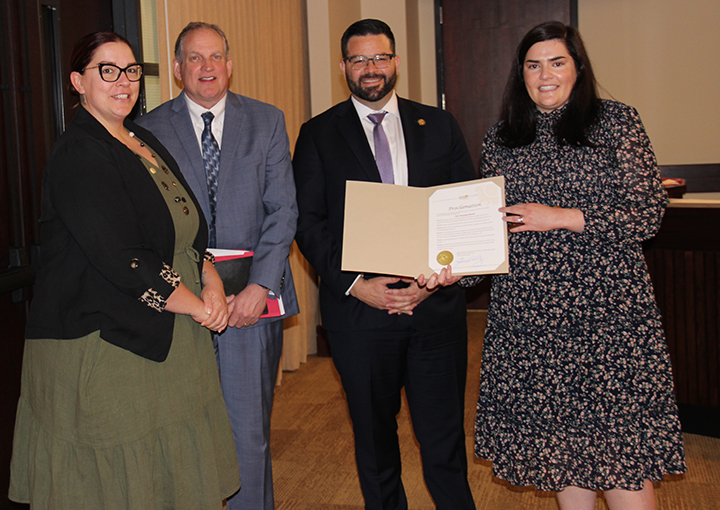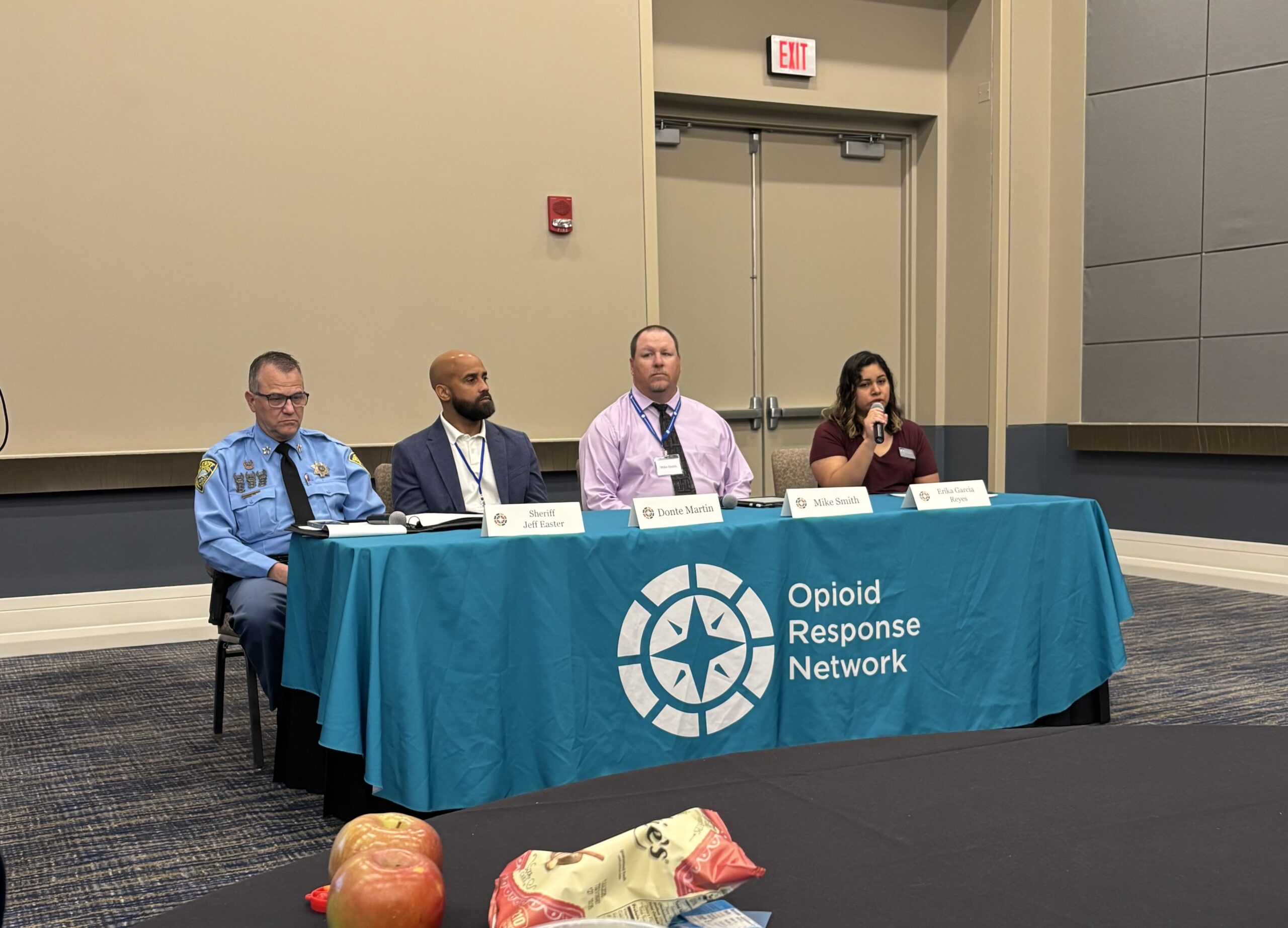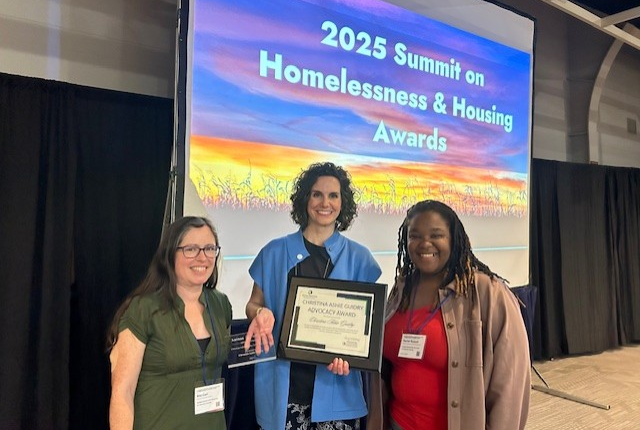Fair Housing Month Comes to a Close
Guest Editorial by
Heather McNeive
Director of Housing Services
Johnson County Planning, Housing and Community Development

Fair Housing is a critical underpinning of a healthy, thriving community. On April 10th, 2025, the Board of County Commissioners proclaimed April as Fair Housing Month to draw attention to the fact that all residents have rights under the law to access housing without discrimination.
Don’t know much about the history of Fair Housing? Racial restriction and advocacy to end the practices are central to Johnson County’s story. Check out the Spring Edition of the JoCo Magazine. The story beginning on page 16 explores the history of Redlining and the original purpose of the 1968 Fair Housing Act, which was to put an end to racial discrimination in housing. In 1950, 148 of Johnson County’s 154 housing developments had racially restrictive covenants limiting purchases to white homeowners only. Against this backdrop, champions like Don Sewing, Jr., Ruth Shechter and Rev. Robert Meneilly championed equal access to housing and worked to integrate suburban neighborhoods.
Race is not the only protected class the Fair Housing Act identifies; others include color, national origin, disability, religion, sex and familial status. It protects both home buyers and renters and notes that all people are entitled to equal terms and conditions; equal housing location options; preference-free advertising; and reasonable accommodations for people who have disabilities. As lives change, so, too, does one’s need for the tenets of the Fair Housing Act. Changes to family size or structure or a disability that comes with age or injury could put housing out of reach if not for these protections.
Last week Johnson County Housing Services partnered with the City of Overland Park and Kansas Legal Services to host Fair Housing Forums. These forums provided opportunities for tenants to know what they are legally entitled to request and how to file a complaint if they feel they have experienced discrimination. Similarly, the forums provided information for landlords about their responsibilities under the Fair Housing Act and where to get assistance meeting tenant needs.
Finally, a thank you to the public servants at the County’s Housing Services Division who use April as a time to brush up on their training to ensure they are giving accurate and timely assistance to all who may need to know about their rights or responsibilities.
Preliminary 2025 Point in Time Count Fact Sheet Released

Johnson County’s Continuum of Care on Homelessness is a collaboration of public and private service providers committed to quickly and effectively responding to housing crises to either prevent or end homelessness among Johnson County residents. The U.S. Department of Housing and Urban Development (HUD) requires that Continuums of Care conduct an annual Point in Time (PIT) count of households within their geographic region experiencing homelessness on one night in the last ten days of January. The count is a snapshot on a single night that is used to monitor trends year to year and identify unmet needs among residents experiencing homelessness.
The PIT count includes people staying in shelters, transitional housing programs (dedicated to homeless households, up to 24 months), or in unsheltered locations such as tents, vehicles, or other places not meant for habitation. HUD does not count households who are temporarily doubled up with friends or family. In prior years, UCS has released the PIT Count fact sheet after the data was submitted, reviewed, and approved by the Department of Housing and Urban Development. The timeline for this process will take longer this year due to changes in federal government guidance, so the Johnson County CoC Board recommended releasing a separate preliminary PIT Count fact sheet this year to allow local providers to use the data as needed for planning purposes.
The number of people counted during the 2025 PIT count was 253, very similar to January 2024 (250) and a 65% increase from January 2016 (153). Other notable trends over the last 10 years include:
- The number of households with children has remained relatively flat in the county and the number of adults-only households has increased significantly. From 2016 to 2025, the number of adults-only households rose from 27 to 156, a 478% increase.
- The number of people who were unsheltered on the night of the count rose significantly over time, from 10 people in the 2016 count to 72 people in the 2025 count, a 620% increase.
Get all the data in our latest fact sheet.
UCS Shares Best Practices at the Kansas Fights Addiction Regional Summit

On Friday, April 18th, the Kansas Attorney General partnered with the Opioid Response Network to host a regional summit to identify best practices for using Kansas Opioid Settlement Fund dollars. Over 80 individuals from communities across the state attended the Summit. The State of Kansas was awarded approximately $340 million as the result of lawsuits filed against opioid manufacturers, distributors, and pharmacies. These funds will be distributed through 2040 to municipalities and eligible organizations for the purpose of opioid remediation.
The Summit emphasized the approved uses for the funds, provided an opportunity for jurisdictions to discuss ways it could deploy these dollars into their communities, and highlighted the findings from the state needs assessment. The needs assessment is overseen by the Kansas Fights Addiction Board and will be used for future allocation decisions.
During the Summit, the Substance Use Continuum of Care Fund (SUF) grant allocation process was featured as a best practice approach. Administered by UCS, the SUF includes seven jurisdictions that pool their funds together to have a larger impact in the county. Together in 2024 and 2025, jurisdictions allocated over $900,000 to address substance use disorder in Johnson County. Some of the programs receiving funds focus on increasing access to and usage of Naloxone, a lifesaving intervention, providing workforce support and addressing Adverse Childhood Experiences (ACES).
UCS appreciates the continued collaboration and commitment of the contributing jurisdictions (Johnson County Government and cities of Leawood, Lenexa, Olathe, Overland Park, Prairie Village, Shawnee).
SUF Grantee Spotlight: The Boys & Girls Clubs of Greater Kansas City Strengthens the Substance Use Continuum of Care

The Boys & Girls Clubs of Greater Kansas City provides whole child development experiences for young people across the metro. With daily access to evidence-based programs, members build skills that prepare them to thrive now and in the future.
Jason Roth, President & CEO, shares that the impact of the Clubs is seen every day—from small wins to major milestones. “Our programs are nurturing and comprehensive, meeting each individual where they are and building them up from there. Every day in the Clubs brings success stories—challenges quashed, aspirations identified, projects completed. The continuity of the Clubs is paramount. We are here day in and day out to celebrate achievements and to overcome adversities.”
Through support from the Substance Use Continuum of Care Fund (SUF), the Clubs can offer intentional, ongoing programming that reinforces school learning and empowers youth to make informed choices. It also helps provide access to stability in mentors and positive connection points. Jason adds, “The benefit of substance abuse services reaches far and wide. This includes family members, friends, peers, neighbors, and so many more. Building a positive, pro-active generation that understands and is empowered to make sound decisions benefits the entire community.”
The 2026 SUF grant cycle will open on May 1st!
For more information contact Erika García Reyes at erikag@ucsjoco.org or visit https://ucsjoco.org/substance-abuse/
On the Road: UCS Team Presents and Participates at Statewide Conferences

Last week, UCS team members traveled across Kansas to engage in vital statewide conversations on youth voice, housing, health, and equity. The week began with the inaugural Kansas Statewide Homeless Coalition’s Youth Summit, bringing together young leaders with lived experience of housing instability and youth service providers to influence future policy and services. At the Kansas Statewide Housing and Homelessness Summit, Christina Ashie Guidry, UCS Director of Policy and Planning, highlighted the impact of UCS’s partnership with the Kansas Housing Advocacy Network (KHAN), while Rachel Russell, UCS Director of Equity and Community Engagement, spoke on the intersection of race, health, and housing using local data to guide equitable solutions. The Summit culminated in an award ceremony where Christina was honored as the first recipient of the newly named Christina Ashie Guidry Advocacy Award, recognizing her leadership and community-driven advocacy.
At the same time in Manhattan, UCS Executive Director Kristy Baughman spoke at the Kansas County Commissioners Conference, emphasizing housing’s role in sustaining economic growth and providing practical statewide policy recommendations. Kristy shared data contrasting steep increases in housing costs with slow wage growth for key occupation categories across the state.
Closing out the week, Rita Carr, UCS Director of Community Planning, participated in the Kansas launch of Built for Zero, a national initiative aimed at ending homelessness through real-time data and systemic change. These collective efforts underscore UCS’s commitment to collaboration, data-informed strategies, and equity-centered action—demonstrating that with unified voices and purpose, meaningful progress is not just possible, but already underway.
Register Now for the 2025 Human Service Summit!
Register here.



